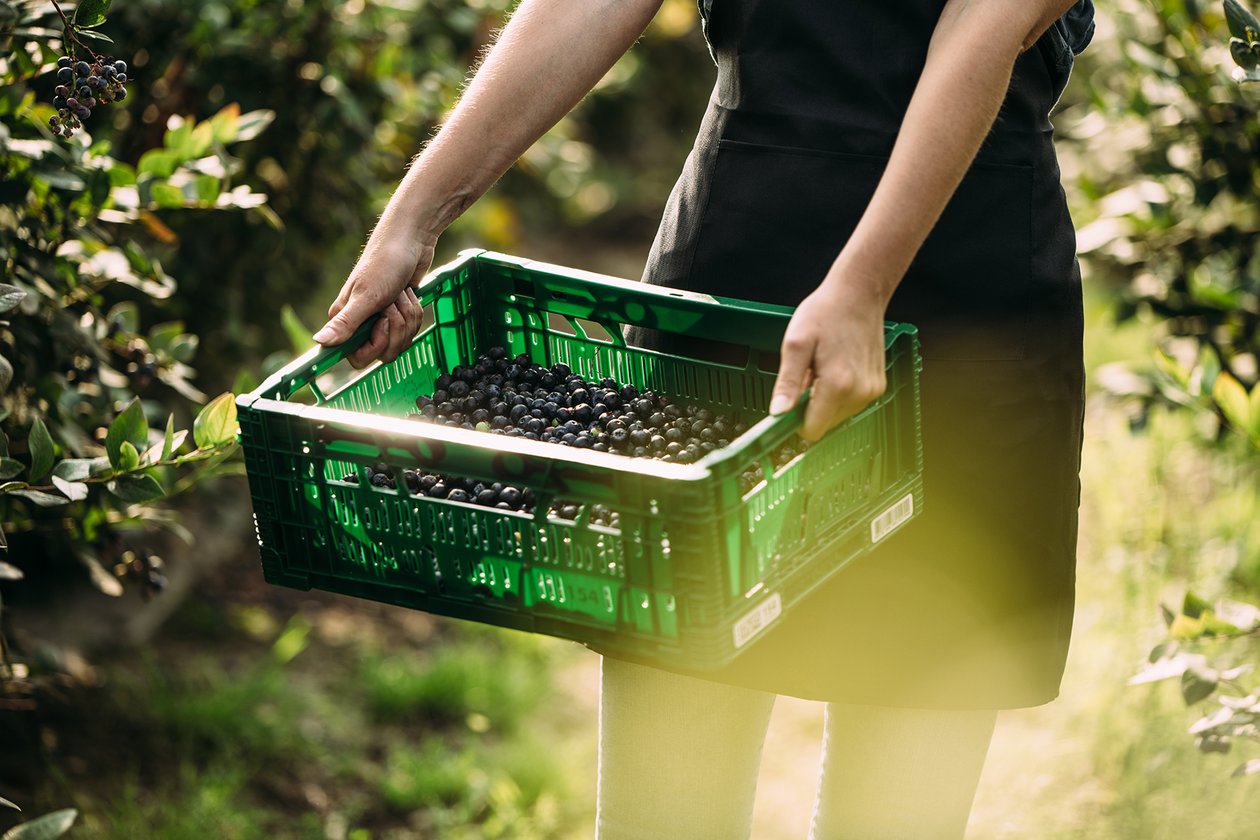The answer in short: by using reusable packaging instead of cardboard. Reusable containers for fruit and vegetables result in no less than 60% lower CO2 emissions than cardboard packaging. This is the conclusion of an extensive European study commissioned by the German organization Stiftung Initiative Mehrweg (SIM).
The study, carried out by independent research institute Fraunhofer, can help players in the fresh food supply chain make well-founded choices if they want to further reduce their carbon footprint. For Euro Pool System, market leader in the field of reusable packaging in the fresh supply chain, this is further confirmation that reusable packaging can make a positive contribution to reducing CO2 emissions.
14.5 tonnes compared with 37.7 tonnes of CO2 emissions
In the study, the scientists compared the CO2 emissions of one-off cardboard boxes (CB = cardboard boxes) with reusable plastic containers (RPC = reusable plastic containers). They assumed the transport of 1,000 tonnes of fruit and vegetables. When using reusable packaging, the emissions amounted to 14.5 tonnes. When using cardboard packaging, CO2 emissions amounted to 37.7 tonnes. The emissions from using reusable packaging are much lower per rotation.
Actual transport distances
In the comparison between the packaging systems, the scientists included the production of the material, its life cycle and its disposal. They based this on actual transport distances in Germany, Spain, Italy, the Netherlands and France. The research was carried out according to the requirements of ISO 14040/44. These international standards focus mainly on the process of performing an LCA (Life Cycle Assessment). This means, among other things, that a committee of independent experts assessed the study (panel review).
Reduce your CO2 emissions now with EPS’s reusable folding trays
Euro Pool System strives to create value by driving efficiency in the fresh supply chain together with their suppliers, customers and partners. At EPS, circularity is at the heart of our activities. By providing you with reusable folding trays made from HDPE plastics we can help your company reduce their carbon footprint, just like we have helped many companies before. For example, Tesco. Tesco engages in many initiatives limiting carbon footprint and reducing waste. Therefore working with EPS’ pooling system was an obvious step. Read their full story “Pooling System at Tesco saves money and the planet” here:


